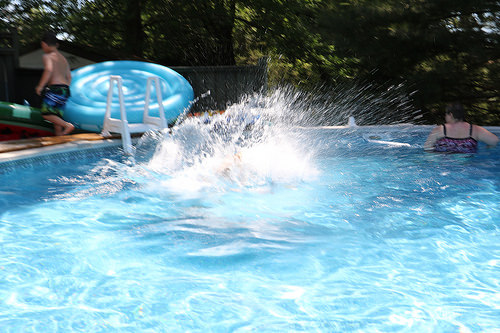Swimming has been a part of my life as far back as I can remember. I used to go swimming regularly with my cousins at my grandparents pool and lived close enough to the ocean to swim there occasionally. I even remember doing an open water swim (probably 300m) in a small mountain lake when I was about 10. I’d never really used swimming for fitness, but earlier this year I started picking up swimming in order to do sprint triathlon. While I could swim from one side of the pool to the other, it occurred very slowly at least relative to the times I saw others swim. I wanted to try to improve my speed and endurance so I watched a few YouTube videos on efficient swimming. On my next swim, I tried less hard, taking fewer more powerful strokes and my time improved, not only that but I had more energy even after swimming a good distance.
In most sports, when we put in more effort we go aster. The returns diminish as more energy is applied, but there is a pretty strong correlation. In swimming, more effort can easily lead to going more slowly. We spend more energy making splashes and waves than going forward and so we’re exhausted and it takes us longer. It’s sort of like if we amped up our running by jumping in circles between each step. Sure we’d burn more calories and be exhausted, but we wouldn’t cover more distance.
And while it’s fascinating in sports, it also seems like this applies to a lot of work we do. We can work longer hours but get less done. We can have more people working on a project but accomplish less than a small team with the same task. As is oft said, we should never confuse effort with results. Instead we should get a feel for how to efficiently get the work down without all the churn.
Photo Credit: anjanettew cc

Leave a Reply